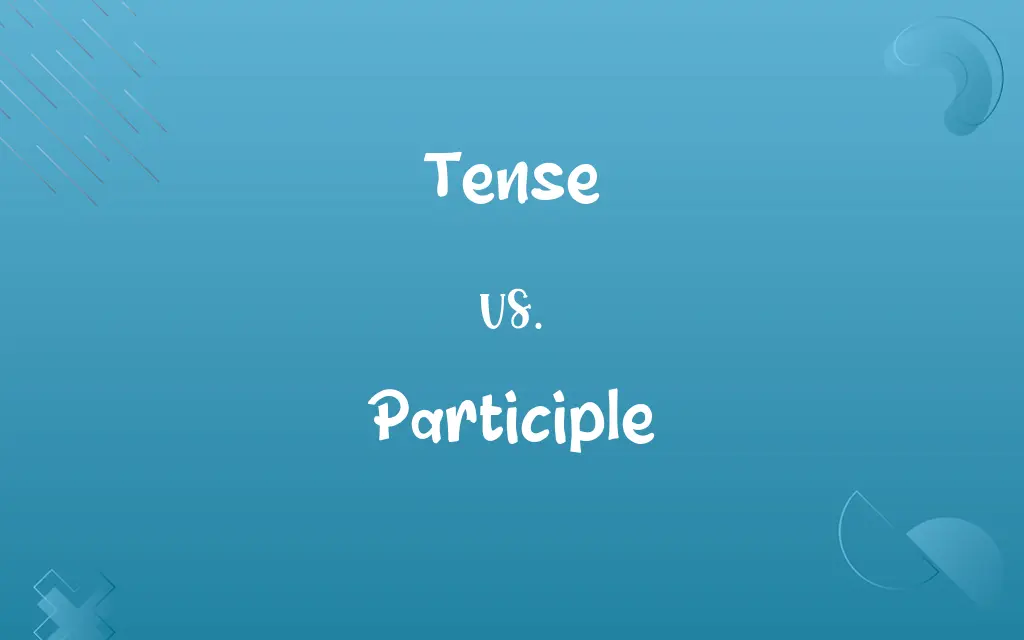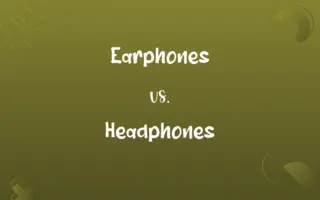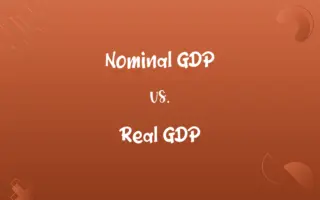Tense vs. Participle: Know the Difference

By Shumaila Saeed || Updated on December 25, 2023
Tense indicates the time of action (past, present, future) in a verb, while a participle is a form of a verb used as an adjective or to form verb tenses.

Key Differences
Tense in grammar refers to the time reference of a verb, signifying when an action occurs. It can be past, present, or future. Participle, on the other hand, is a verb form that functions as an adjective or is used in forming various verb tenses, like perfect or continuous tenses.
Shumaila Saeed
Dec 18, 2023
The tense of a verb conveys when the action it describes takes place, crucial for establishing a timeline in language. Participles, being derivatives of verbs, either describe a quality (adjectival role) or indicate an ongoing or completed action (as in verb tense formation).
Shumaila Saeed
Dec 18, 2023
In tenses, verbs are conjugated to match the time of action, like 'walk' becomes 'walked' for past tense. Participles come in two forms: present participle (ending in -ing, e.g., walking) and past participle (often ending in -ed, -d, -t, -en, or -n, e.g., walked).
Shumaila Saeed
Dec 18, 2023
Tense is integral for clear communication, as it situates actions in time. Participles are versatile; they can give more detail about the subject (like in adjectives) or combine with auxiliary verbs to express complex temporal aspects.
Shumaila Saeed
Dec 18, 2023
Mastery of tenses is essential for expressing time accurately in English, while a good grasp of participles enables richer and more complex sentence structures, enhancing both descriptive and narrative capabilities in language.
Shumaila Saeed
Dec 18, 2023
ADVERTISEMENT
Comparison Chart
Function
Indicates time of action
Used as an adjective or in verb tense formation
Shumaila Saeed
Dec 18, 2023
Example
"He walks" (present tense)
"Running water" (present participle as adjective)
Shumaila Saeed
Dec 18, 2023
Grammatical Interaction
Standalone in verb conjugation
Often used with auxiliary verbs
Shumaila Saeed
Dec 18, 2023
ADVERTISEMENT
Tense and Participle Definitions
Tense
Tense denotes whether an action is occurring in the past, present, or future.
She sang (past tense).
Shumaila Saeed
Dec 11, 2023
Participle
Participle acts as a verb modifier, describing nouns or pronouns.
Written test (past participle).
Shumaila Saeed
Dec 11, 2023
Tense
Tense is a grammatical concept that places actions in time.
I am running (present continuous tense).
Shumaila Saeed
Dec 11, 2023
Participle
Participle functions as a non-finite verb form.
Broken glass (past participle).
Shumaila Saeed
Dec 11, 2023
Tense
Tense signifies the time frame of an action in a verb.
He eats (present tense).
Shumaila Saeed
Dec 11, 2023
ADVERTISEMENT
Participle
Participle can be a verb form in continuous or perfect tenses.
They are swimming (present participle).
Shumaila Saeed
Dec 11, 2023
Participle
Participle modifies or complements the main verb.
Having finished, she left (perfect participle).
Shumaila Saeed
Dec 11, 2023
Tense
In a state of nervous tension or mental strain
Was very tense before the exam.
Shumaila Saeed
Dec 10, 2023
Participle
Participle is a form of a verb used as an adjective.
Barking dogs (present participle).
Shumaila Saeed
Dec 11, 2023
Tense
Causing or characterized by nervous tension or mental strain
A tense standoff between border patrols.
Shumaila Saeed
Dec 10, 2023
Participle
A form of a verb that in some languages, such as English, can function independently as an adjective, as the past participle baked in We had some baked beans, and is used with an auxiliary verb to indicate tense, aspect, or voice, as the past participle baked in the passive sentence The beans were baked too long.
Shumaila Saeed
Dec 10, 2023
Tense
(Linguistics) Enunciated with taut muscles, as the sound (ē) in keen.
Shumaila Saeed
Dec 10, 2023
Participle
(grammar) A form of a verb that may function as an adjective or noun. English has two types of participles: the present participle and the past participle. In other languages, there are others, such as future, perfect, and future perfect participles.
Shumaila Saeed
Dec 10, 2023
Participle
A part of speech partaking of the nature of both verb and adjective; a form of a verb, or verbal adjective, modifying a noun, but taking the adjuncts of the verb from which it is derived. In the sentences: a letter is written; being asleep he did not hear; exhausted by toil he will sleep soundly, - written, being, and exhaustedare participles.
By a participle, [I understand] a verb in an adjectival aspect.
Shumaila Saeed
Dec 10, 2023
Tense
A property of verbs in which the time of the action or state, as well as its continuance or completion, is indicated or expressed.
Shumaila Saeed
Dec 10, 2023
Participle
Anything that partakes of the nature of different things.
The participles or confines between plants and living creatures.
Shumaila Saeed
Dec 10, 2023
Tense
A category or set of verb forms that indicate or express the time, such as past, present, or future, of the action or state.
Shumaila Saeed
Dec 10, 2023
Participle
A non-finite form of the verb; in English it is used adjectivally and to form compound tenses
Shumaila Saeed
Dec 10, 2023
Tense
Any of the forms of a verb which distinguish when an action or state of being occurs or exists.
The basic tenses in English are present, past, and future.
Shumaila Saeed
Dec 10, 2023
Tense
An inflected form of a verb that indicates tense.
English only has a present tense and a past tense; it has no future tense.
Shumaila Saeed
Dec 10, 2023
Tense
The property of indicating the point in time at which an action or state of being occurs or exists.
Dyirbal verbs are not inflected for tense.
Shumaila Saeed
Dec 10, 2023
Tense
Showing signs of stress or strain; not relaxed.
You need to relax, all this overtime and stress is making you tense.
Shumaila Saeed
Dec 10, 2023
Tense
One of the forms which a verb takes by inflection or by adding auxiliary words, so as to indicate the time of the action or event signified; the modification which verbs undergo for the indication of time.
Shumaila Saeed
Dec 10, 2023
Tense
Stretched tightly; strained to stiffness; rigid; not lax; as, a tense fiber.
The temples were sunk, her forehead was tense, and a fatal paleness was upon her.
Shumaila Saeed
Dec 10, 2023
Tense
Become tense or tenser;
He tensed up when he saw his opponent enter the room
Shumaila Saeed
Dec 10, 2023
Tense
Pronounced with relatively tense tongue muscles (e.g., the vowel sound in `beat')
Shumaila Saeed
Dec 10, 2023
Tense
Tense categorizes verbs by time of occurrence.
They will go (future tense).
Shumaila Saeed
Dec 11, 2023
Tense
Tense differentiates verbs based on when actions happen.
He had eaten (past perfect tense).
Shumaila Saeed
Dec 11, 2023
Repeatedly Asked Queries
What are the types of participles?
present participle (ending in -ing) and past participle.
Shumaila Saeed
Dec 18, 2023
What is a participle?
A participle is a verb form used as an adjective or in forming certain verb tenses.
Shumaila Saeed
Dec 18, 2023
Can a participle stand alone as the main verb?
No, participles typically need auxiliary verbs to form complete verb phrases.
Shumaila Saeed
Dec 18, 2023
Is tense important for meaning in a sentence?
Yes, tense is crucial for conveying the time frame of actions or events.
Shumaila Saeed
Dec 18, 2023
What is a past participle?
A past participle is a verb form often ending in -ed, used in perfect tenses or as adjectives.
Shumaila Saeed
Dec 18, 2023
What is tense?
Tense is a grammatical category that expresses time reference in verbs.
Shumaila Saeed
Dec 18, 2023
What is a present participle?
A present participle is a verb form ending in -ing, used for continuous tenses or as adjectives.
Shumaila Saeed
Dec 18, 2023
Are there exceptions in tense formation?
Yes, some verbs have irregular tense forms.
Shumaila Saeed
Dec 18, 2023
Are participles always verbs?
No, while derived from verbs, they function as adjectives or part of a verb phrase.
Shumaila Saeed
Dec 18, 2023
Can participles stand alone as the only verb in a sentence?
No, they usually accompany an auxiliary verb in English.
Shumaila Saeed
Dec 18, 2023
How do participles function in sentences?
Participles can function as adjectives, or combine with auxiliary verbs for complex tenses.
Shumaila Saeed
Dec 18, 2023
Do all verbs have distinct past participles?
Most do, but some verbs have irregular past participles.
Shumaila Saeed
Dec 18, 2023
Are participle forms the same for all verbs?
No, some verbs have irregular participle forms.
Shumaila Saeed
Dec 18, 2023
How does tense relate to aspect?
Tense is about time, while aspect focuses on the nature of the verb action (e.g., ongoing, completed).
Shumaila Saeed
Dec 18, 2023
Can tense change the meaning of a sentence?
Yes, changing the tense of a verb can alter the temporal meaning of a sentence.
Shumaila Saeed
Dec 18, 2023
What role does tense play in storytelling?
Tense sets the time frame, impacting how a story's events are perceived.
Shumaila Saeed
Dec 18, 2023
Can participles be used in passive constructions?
Yes, past participles are often used in forming passive voice.
Shumaila Saeed
Dec 18, 2023
Is it possible to have a sentence without a tense?
No, every verb in a sentence must exhibit some form of tense.
Shumaila Saeed
Dec 18, 2023
How do participles affect sentence structure?
Participles can add complexity and detail to sentences, enhancing descriptions.
Shumaila Saeed
Dec 18, 2023
Share this page
Link for your blog / website
HTML
Link to share via messenger
About Author
Written by
Shumaila SaeedShumaila Saeed, an expert content creator with 6 years of experience, specializes in distilling complex topics into easily digestible comparisons, shining a light on the nuances that both inform and educate readers with clarity and accuracy.









































































